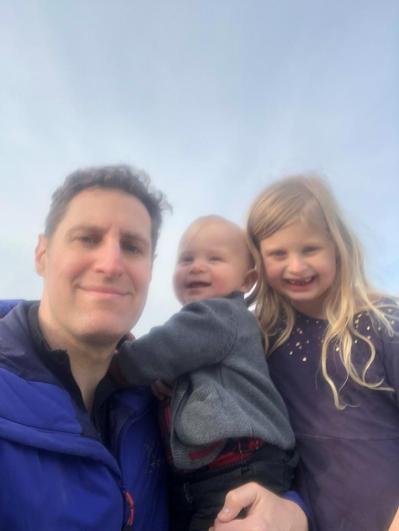- Managing your Practice
-
- Your Benefits
-

Introducing the ultimate Club MD experience
From work to play, and everything in between, we provide you with access to hundreds of deals from recognizable, best-in-class brands, elevating every facet of your life – from practice supports to entertainment, restaurants, electronics, travel, health and wellness, and more. Your Club MD membership ensures that these deals are exclusive to you, eliminating the need to search or negotiate.
Welcome to the ultimate Club MD experience. Your membership, your choices, your journey.
-
- Advocacy & Policy
-
- Collaboration
- News & Events
-

Stay Informed
Stay up to date with important information that impacts the profession and your practice. Doctors of BC provides a range of newsletters that target areas of interest to you.
Subscribe to the President's Letter
Subscribe to Newsletters
-
- About Us
-

Dr Eric Cadesky, family doctor, Vancouver
April 29, 2022
Doctors of BC: Our stories
“How are you?”
To be honest, I’ve never had much time to consider this question. As a community-based primary care doctor, my days overflow with patient visits, calls, emails, texts, and faxes. Most of it is direct care, some of it is inefficient administrative work, and all of it has to be done. So, when a family with a sick child comes in, or someone is anxiously awaiting test results, I have to triage not only who I help first, but when I have to care for myself. Do I see the person who drove an hour for their appointment, or do I eat my lunch? Do I talk to a colleague on the phone about a mutual patient, or go to the washroom?
Although being a doctor is gratifying, every day is full of difficult choices between competing interests. For a long time, I felt guilty when I couldn’t do everything for everyone.
But with the appearance of COVID-19—and the wonderful arrival of our son who was born at home a few months into the pandemic—it became apparent that we all had to recalibrate our expectations, myself included.
Doctors stepped up to help those who needed it, even before we had personal protective equipment. We started to appreciate the unsung workers at grocery stores, on buses, and in hospitals.
No one knew what to expect.
Doctors quickly pivoted to virtual care, but some patients still needed in-person care. It felt strange leaving my daughter (who was home, “learning” virtually), my wife and our newborn to go to the office.
We didn’t know when the clinic’s plexiglass would arrive, or if our masks were enough. Vaccines were in early development and we didn’t know about long COVID, or how deadly the virus would be. The previous dilemmas were replaced by new ones; would I catch COVID trying to help others? Would I bring the virus back to my family? How do we protect those at most risk?
I would drive home from work with windows up, passing by gas stations where people with masks and vinyl gloves filled their cars with 80c/L gas, and after walking through the back entrance of my home, I would throw my clothes immediately into the washer and step into the shower before facing my family.
As always, they supported what I do, and the pressures of the pandemic and our shared anxieties brought us closer together. As the number of cases and deaths spiked, every day my family was alive and well felt like a victory, but our celebrations were small and cautious with the future uncertain.
So how am I?
Now we have vaccines, experience, and a break between waves. We know what has worked and what hasn’t. The demands on doctors remain intense due to inefficiencies in our system, the loss of colleagues, and our patients’ mental and physical health needs. Yet having lived through the uncertainty, we are prepared for what comes next. My patients know they can wait a few minutes. I know I can take a quick break for lunch. The one thing that hasn’t changed? Every evening that I come home to my family is still a celebration.




